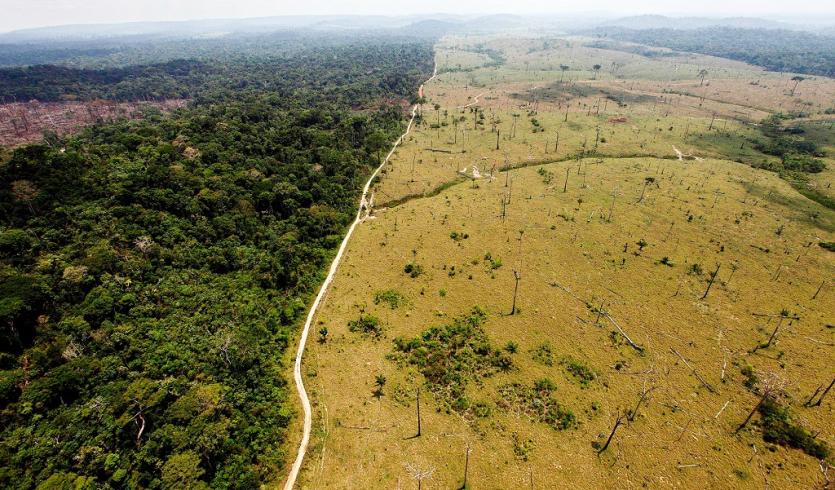Photo:TWD
Goods related to deforestation to see major bans across the UK
By Patryk Krych | The World Daily | AUGUST 26th 2020
Under new governmental plans, British supermarkets will be banned from selling products with links to deforestation or illegally deforested land, such as beef, palm oil, and other commodities related to the practice.
Moving forward, large companies that operate within the United Kingdom will be forced to publish information to show where their key commodities, such as soy, rubber or beef, or similar commodities such as cocoa, come from. This is to be done in order to show that they were produced in a manner that entirely complies with the country’s environmental protection laws, and that no trees were illegally cut down – or no patches of forest illegally deforested during the process or for the cause of their production.
Products that failed to be produced in a way complying with the environment laws will no longer be allowed to be sold in the country, and failure to abide by the ban, or to publish their information on the products appropriately, will result in hefty fines, according to the Department for Food and Rural Affairs (Defra).
“The UK has a duty to lead the way in combating the biodiversity and nature crisis. We have all seen the devastating pictures of the world’s most precious forests being cleared, often illegally, and we can’t afford not to act as a country,” said the international environment minister, Zac Goldsmith. “There is a hugely important connection between the products we buy and their wider environmental footprint, which is why the government is consulting today on new measures that would make it illegal for businesses in the UK to use commodities that are not grown in accordance with local laws.”
The proposals were first made in early 2020, this year, by a panel of business leaders that were led by Sir Ian Cheshire. They’d been commissioned by Defra to lead an examination of the United Kingdom’s land-use strategy, and how it can be improved for more optimised efficiency. As the hosts of the next COP26 United Nations global climate summit, it’s likely that the UK is working towards showing its capability as a climate-aware, environmental nation.
“It’s clear businesses and consumers don’t want imports that wreck the planet, drive deforestation in areas like the Amazon and lead to devastating fires,” said Mike Barret executive director of science and conservation at WWF-UK.
It’s been found that about 11% of global greenhouse gas emissions can be attributed to the issue of deforestation. As much of 90% of forests are cut down illegally in some countries. While the proposition of the legislation has brought many people joy, along with the promise of a gradual change towards environmental betterment, campaigners for Greenpeace have their doubts about the legislation, referring to it as “seriously flawed.”






